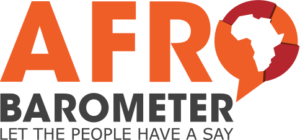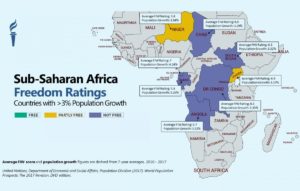 What’s going on with democracy in Africa? asks Robert Mattes, a professor in the University of Strathclyde’s School of Government and Public Policy.
What’s going on with democracy in Africa? asks Robert Mattes, a professor in the University of Strathclyde’s School of Government and Public Policy.
The research network Afrobarometer [a partner of the National Endowment for Democracy] finds some answers in its latest analysis, based on face-to-face interviews with more than 45,000 Africans in 34 countries. The wide-ranging interviews, conducted with nationally representative samples between late 2016 and late 2018, covered more than two dozen questions on democracy, elections and political freedoms, he writes for the Post’s Monkey Cage blog:
Yet fewer than one in six Africans, or 15 percent, can be described as “dissatisfied democrats” — that is, citizens who are committed democrats but are dissatisfied with the current performance of the regime. Our survey data show that these are the people most likely to support civil liberties, to take responsibility for holding elected officials accountable, and to support a range of limits on government — in short, to do the things that expand democracy, or at least guard against its erosion. We also find that African countries with lots of dissatisfied democrats are more likely to democratize, or avoid democratic backsliding, than countries that don’t.
 And that’s where the real story unfolds — in individual countries. African countries are moving from different starting points at various speeds in different directions, adds Mattes, a co-founder of and senior adviser to Afrobarometer and an honorary professor in the Institute for Democracy, Citizenship and Public Policy at the University of Cape Town:
And that’s where the real story unfolds — in individual countries. African countries are moving from different starting points at various speeds in different directions, adds Mattes, a co-founder of and senior adviser to Afrobarometer and an honorary professor in the Institute for Democracy, Citizenship and Public Policy at the University of Cape Town:
However, when we look at several other African countries that Freedom House considers only “partly free” or “unfree,” we find sizable proportions of dissatisfied democrats, from roughly one-fifth to two-thirds of the population, who are potential bulwarks against authoritarianism. In Zambia and Côte d’Ivoire, that proportion is 22 percent; in Zimbabwe, 29 percent; in Togo, 33 percent; and in Gabon, 42 percent. These numbers suggest that if those governments attempt to further restrict civil liberties and political activity, a significant proportion of citizens will push back. That’s a hopeful sign.
RTWT







